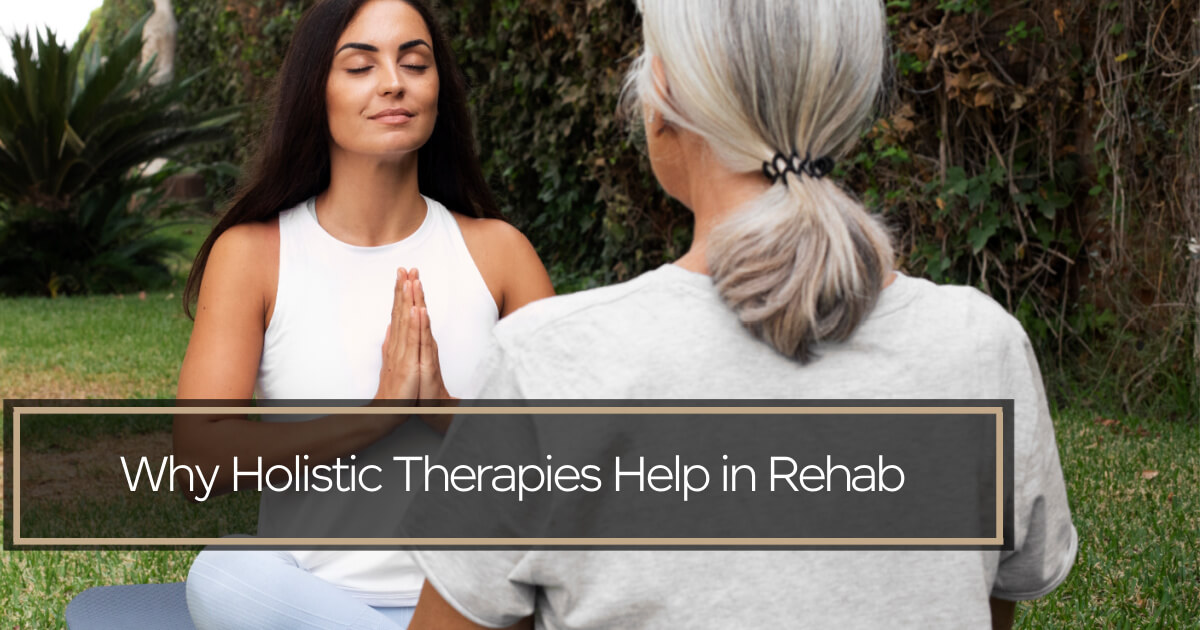It’s frustrating when people go to rehab, and their treatment focuses solely on getting them to stop using drugs or alcohol. Don’t get me wrong – this is important. But addiction messes with so much more than just your physical cravings. It damages how you connect with people, leaves you wondering what your purpose is, and creates emotional chaos that’s hard to describe. My brother went through a program a few years ago that was all about stopping his drinking. He did great for about six months. Then something stressful happened at work, and boom – he was back to square one. The facility focused on keeping him sober but didn’t help him figure out why he felt so terrible about himself all the time. So, I began researching other options, and these holistic methods caught my attention since they seemed to cover all the bases.
Mind-Body Connection in Addiction Recovery
My therapist friend always says something that stuck with me: when you’re addicted to something, your brain and your body get completely out of sync. Similar to the way that your body might crave a substance, but your mind knows that it’s bad for you. During recovery, you must get your mind and body working together again instead of fighting each other. When you’ve been using substances for a while, the communication between the two can become pretty messed up. Stress hormones remain elevated, sleep patterns become disrupted, and your body basically forgets how to feel good naturally.
Holistic approaches tackle this problem head-on. A friend of mine started taking yoga classes simply because her doctor suggested that it might help alleviate her back pain. She wasn’t expecting much, honestly. But after about a month, she mentioned that she wasn’t grinding her teeth at night anymore. Her sleep pattern improved as well. Another guy I know tried meditation since his wife kept bugging him about it. He thought that it was silly at first, but now he swears that it helps him stay calm during traffic jams and work meetings. These practices can change how your body responds to everyday stress. Your mind and body get a chance to reconnect and work as a team again.
Research shows that individuals who incorporate mind-body practices into their recovery, experience more positive outcomes. They’re more likely to stick with treatment and less likely to relapse. Why? Since they’re addressing the whole system, and not just trying to white-knuckle their way through cravings.
Stress Reduction Techniques for Rehab
Let’s be real – rehab is typically stressful. You’re dealing with withdrawal, facing emotions that you’ve been avoiding, and are completely changing your lifestyle. Without proper stress management, many people end up relapsing simply to cope with the overwhelming feelings.
The cool thing about holistic stress reduction is that it gives you actual tools to use anywhere. Deep breathing exercises may sound simple, but they work because they activate your parasympathetic nervous system, telling your body that it’s safe to relax. Progressive muscle relaxation helps you identify where you’re holding tension and release it naturally.
What really gets people excited is discovering that they can feel better without substances. One client told me that after learning meditation, that he realized that he’d been searching for that peaceful feeling through drugs for his entire life. Now, he knows how to access it naturally. That’s the power of having real coping mechanisms instead of just being told to “stay strong.”
Emotional Wellbeing During Recovery Process
Early recovery can feel like an emotional roller coaster. Without substances to numb feelings, everything seems to hit harder – anger, sadness, anxiety, and even happiness can feel overwhelming. Traditional therapy helps you understand these emotions, but holistic approaches help you actually experience and process them safely.
Art therapy, for example, can let people express certain thoughts that they previously couldn’t put into words. Music therapy can help people connect with feelings that they’ve been avoiding. These activities aren’t just feel-good activities – they’re legitimate ways to process trauma and to rebuild emotional intelligence.
The amazing thing is watching someone rediscover joy. When you’ve been using substances for years, you forget what genuine happiness feels like. Through holistic practices, people begin to experience authentic emotions again. They laugh because something’s funny, not because they’re high. They feel proud of real accomplishments.
Building Healthy Coping Skills Daily
This is where holistic therapies shine – they provide you with practical tools for everyday life. When stressed, instead of reaching for your abused substance, try doing five minutes of breathing exercises in its place. Instead of using drugs to feel energized, you might go for a walk or do some stretches.
The key is making these practices so routine that they become automatic. When someone learns to start their day with meditation, they’re setting themselves up for better decision-making throughout the day. When they end their day with gratitude journaling, they’re training their brain to notice positive things instead of focusing on what’s wrong.
It’s not about perfection – it’s about having options. One person might love hiking, while another prefers painting. The goal is to build a toolkit of healthy responses to life’s challenges.
Holistic Therapy Benefits in Treatment
What makes holistic therapy so effective is that it works in conjunction with traditional treatment rather than replacing it. You’re still getting medical detox, individual counseling, and group therapy – but now you’re also healing your entire person.
The benefits compound over time. Better sleep improves mood regulation. Regular exercise increases natural endorphins. Mindfulness practices reduce anxiety and improve decision-making. Nutritional therapy helps your brain produce neurotransmitters naturally. Everything works together.
After experiencing holistic therapies, many people often say that they feel more like themselves than they have in years.






